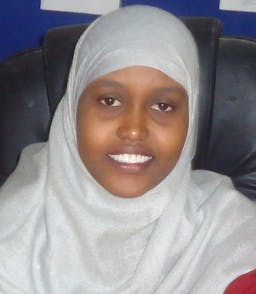Somalia is at risk of losing an Entire Generation!
Jan 21, 2015
Story



Although most regions in Somalia has been affected by the drought but it is worse in some places than the others. Regions located in the northeastern and northern part of the country are relatively stable and has their own administrations. When rainy seasons are missed and the drought strike, communities living under these administrations who are affected by the drought received support from the local administrations and other members of the society. Unlike in the southern part of Somalia where the Transitional Federal Government (TFG) and its opponents are fighting and the community been neglected. The drought hit the pastoralist community where they lost their livestock. The prolonged drought and lack of rains in its usual seasons caused rivers to dry leaving no choice for the farmers but to lose their farms as well.
The United Nations described the situation as the worst drought to strike in 60 years. About 12 million people are affected in the Horn of Africa. In Somalia, due to two year cessation of rains, the ban on foreign aid organizations including food aid agencies by the anti- government militia group called Al-Shabab and the prolonged anarchy in Somalia affected both pastoralist and agriculture societies. They lost their livestock and farms. This forced people to flee their homes and started crossing the borders between Somalia and the neighboring countries.
On the way, starving mothers and their malnourished children lost their lives before they even make it to their destination. Some mothers left their children on the roadside to their way to Dhadhaab refugee camp thinking they are dead. Some mothers carried their children on their back for hours and hours only to realize they passed away long time. It is not only the malnourished children who lost their lives but also their starved mothers as well. One heartbreaking event was an infant sacking his dead mother’s breast!
These are heartbreaking stories from the ground and the truth is they are human beings who are our brothers and sisters. It could have happened to anyone of us at anywhere in this planet. What have we done so far to save their lives? We all heard the drought stories long time ago but little we stood up to prevent or at least reduce the risk of famine occurrence.
Whom to blame for this
The following have been pointed out to be the main root causes of the famine. This was driven from research and community interviews.
The US Administration: who is only interested in relation to the antipiracy and war on terror missions. They will not allow even a single penny of aid money to get into the hands of al-Shabab, the Islamist extremists linked to al-Qaeda which controls large parts of Somalia. The US and its allies been so obsessed with defeating al-Shabab resulted ignoring the fate of the millions of people who live in areas controlled by al-Shabab.
Somalia’s Transitional Federal Government (TFG): this western-backed administration is so weak and only controls very small portion of the country. It failed to bring sustainability to the country. Also lack of transparency and accountability of the TFG’s administration resulted misusing large donations made.
Al-Shabab: who banned humanitarian aid agencies including food agencies from operating in their territory. Also they killed aid workers.
World Food Program (WFP): who did not respond to the situation. Well I do not blame them since we know they carry long procedures before they act. But taking precautions before it is too late is what was needed.
Somali Diaspora Community: the magnitude of the drought, cessation of rains and horrible stories from the ground were striking every Somali citizen’s ears but little was done to prevent the situation from getting worse. The country was suffering for over two decades and the urge need of the vulnerable people on the ground was ignored.
Everyone else: as human beings we ought to help each other. If every fortune woman helped another unfortunate woman all this wouldn’t have happened. Many lives could have been saved.
Women and children are those who suffer most in any case. Everyday 10 out of 10,000 children under the age of 5 die due to malnourishment. The famine is spreading into new regions in the country. Somalia is at risk of losing an entire generation due to the magnitude of the famine. People who first made it to Dhadhaab refugee camp had a greater chance of receiving assistance than those who were still in Somalia. Refugees who crossed the border and reached the camps need shelter, food, water and medical facilities in order to survive. Dhadhaab refugee camp has become overcrowded leading to problems of sanitation and anxiety over the spread of communicable diseases. Women and young girls are also at the risk of been raped.
As human being we ought to act collectively and save their lives. What is been done collectively is much better and effective than what is done individually. Everyone of us is unique and special in their own way. Combining all our great efforts produces positive change and makes this world a better place for everyone. Imagine if we skip one meal to feed the needy ones! Mostly the international non-governmental organizations spent almost half of the donated money on their operations and administration, little will reach to the needy ones. But if they had a collaboration with a reliable agency on the ground to carry the distribution mission, everything would have been easy.




